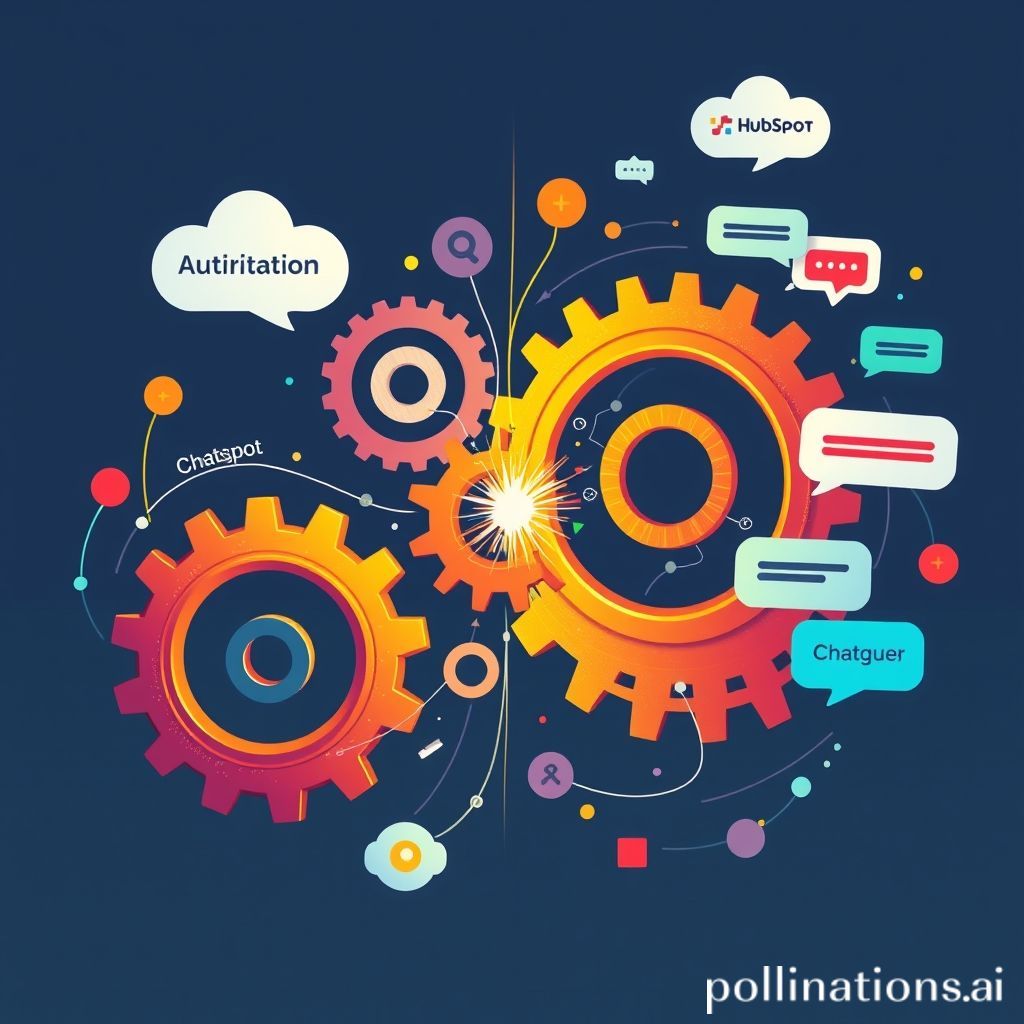Okay, folks, I stumbled across something pretty interesting today and had to share my thoughts. It’s all about HubSpot’s new ChatGPT connector. The general vibe I’m seeing online is definitely positive, almost giddy. But a little voice in my head keeps whispering, “Proceed with caution!”
Think about it: seamlessly integrating the power of AI with your CRM? The possibilities seem endless! Imagine ChatGPT drafting compelling email subject lines, writing personalized social media posts, or even summarizing lengthy customer support tickets. It’s a marketer’s dream, right?
According to HubSpot’s own research, companies that use AI-powered tools see a 25% increase in marketing ROI. That’s a pretty compelling statistic! And with 71% of customers expecting personalized experiences, AI could be the key to scaling those experiences without burning out your team. (Source: McKinsey).
However, here’s where my “proceed with caution” alarm starts blaring. We’re talking about handing over potentially sensitive customer data to an AI. Now, HubSpot has a solid reputation for security, and I’m sure they’ve implemented safeguards. But even the most secure systems are vulnerable.
Remember the Cambridge Analytica scandal? A 2018 study in Nature found that personal data from over 87 million Facebook users was harvested without consent. It’s a stark reminder of the risks involved when dealing with large datasets and third-party integrations.
Plus, there’s the issue of accuracy. ChatGPT is impressive, but it’s not perfect. It can sometimes generate inaccurate or misleading information. A recent study by Stanford University found that AI models can exhibit significant biases depending on the data they were trained on. Imagine the potential damage if ChatGPT starts spreading misinformation to your customers!
Finally, let’s talk about the human element. Will relying too heavily on AI make our marketing feel… well, robotic? Will we lose that personal touch that makes our brand unique? A 2023 survey by PwC found that 76% of consumers say they want more human interaction, not less.
So, what’s the verdict? Am I a total downer raining on the AI parade? Not at all! I’m genuinely excited about the potential of HubSpot’s ChatGPT connector. But I also believe it’s crucial to approach it with a healthy dose of skepticism and a clear understanding of the risks.
Here are my top 5 takeaways:
- Excitement is good, but due diligence is better. Before integrating ChatGPT with your HubSpot account, thoroughly review HubSpot’s security policies and data privacy practices.
- Start small. Don’t unleash ChatGPT on your entire customer database overnight. Begin with a pilot program to test its capabilities and identify potential issues.
- Monitor, monitor, monitor! Keep a close eye on ChatGPT’s output to ensure accuracy and avoid spreading misinformation.
- Don’t forget the human touch. Use ChatGPT to augment your marketing efforts, not replace them entirely.
- Stay informed. The AI landscape is constantly evolving. Keep up-to-date on the latest developments and best practices.
What are your thoughts on HubSpot’s ChatGPT connector? Are you excited, concerned, or somewhere in between? Let’s discuss in the comments!
Frequently Asked Questions (FAQ)
Q1: What exactly is the HubSpot ChatGPT connector?
It’s an integration that allows you to use OpenAI’s ChatGPT directly within your HubSpot platform to automate tasks like content creation, lead scoring, and customer service responses.
Q2: What are the primary benefits of using this connector?
Potential benefits include increased efficiency, personalized customer experiences, and improved marketing ROI.
Q3: What are the potential risks associated with using the HubSpot ChatGPT connector?
Risks include data security breaches, inaccurate or misleading information generated by ChatGPT, and a loss of the human touch in marketing.
Q4: How can I ensure the security of my data when using the connector?
Review HubSpot’s security policies, implement strong data governance practices, and monitor ChatGPT’s access to sensitive information.
Q5: How accurate is the content generated by ChatGPT?
ChatGPT can sometimes generate inaccurate or misleading information. Always double-check its output before publishing or sharing it with customers.
Q6: Will using ChatGPT make my marketing feel less human?
It’s possible. To avoid this, use ChatGPT to augment your marketing efforts, not replace them entirely. Focus on maintaining a personal touch in your interactions with customers.
Q7: What kind of tasks can ChatGPT automate within HubSpot?
ChatGPT can automate tasks like writing email subject lines, creating social media posts, summarizing customer support tickets, and generating personalized content.
Q8: How do I get started with the HubSpot ChatGPT connector?
Check HubSpot’s marketplace or documentation for the integration, and follow their setup instructions.
Q9: What are some best practices for using AI in marketing?
Start small, monitor the AI’s output, maintain the human touch, and stay informed about the latest developments in AI.
Q10: Where can I find more information about AI and its impact on marketing?
Reputable sources include academic journals, industry publications like MarTech, and research reports from firms like McKinsey and PwC.

